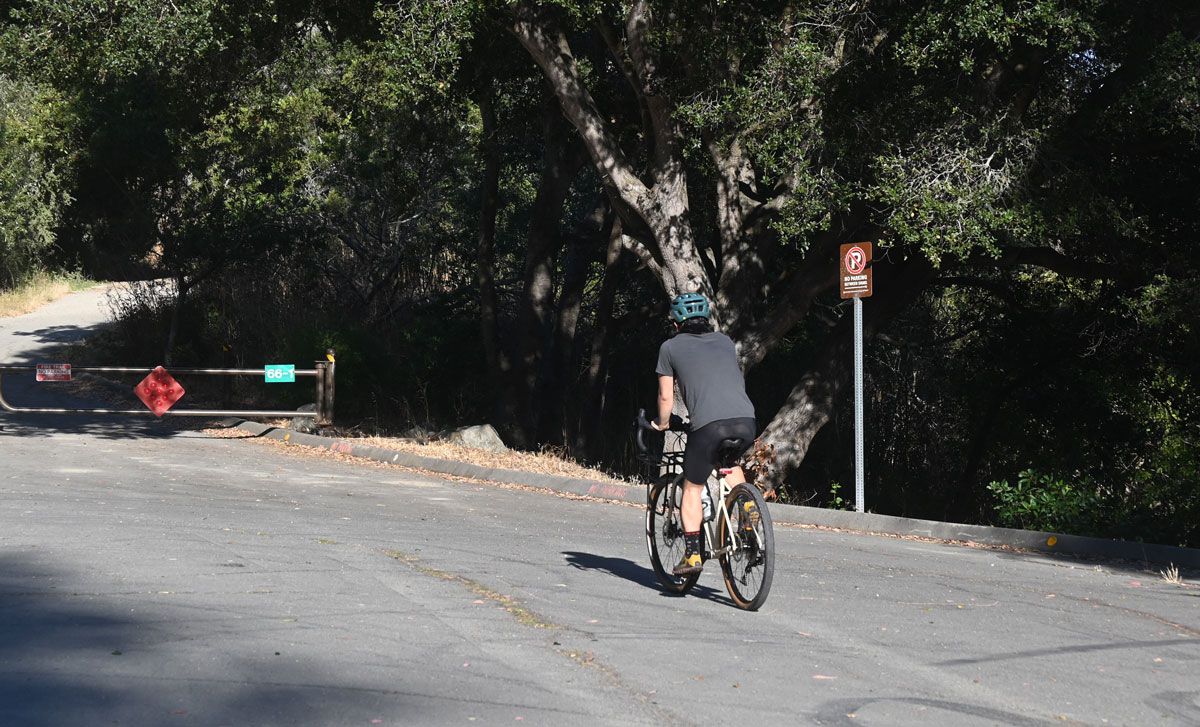

East Bay Regional Park District Board of Directors voted unanimously to allow electric bicycles the same access to trails as traditional bicycles at its meeting in Oakland despite efforts to delay the vote Tuesday afternoon.
Park district officials said e-bikes can increase equitable access to trails for an aging population and people with mobility issues. E-bike use has become widespread in many East Bay parks, and enforcing rules prohibiting their use has become impractical.
State law has also changed the classification of e-bikes. Before 2015, California classified electric bikes as motor vehicles. AB 1096 created three classes of e-bikes and allowed their use on bicycle paths, bikeways, and bicycle lanes unless prohibited by local jurisdictions, according to Trails Program Manager Sean Dougan.
Class 1 e-bikes are pedal assist, and the motor assists while pedaling up to a maximum of 20 miles per hour
Class 2 e-bikes have a throttle and pedal assist (but do not require pedaling) with a maximum assist speed of up to 20 miles per hour
Class 3 e-bikes are pedal assist and have a maximum motor assist speed of 28 miles per hour
Bike opponents said permitting e-bikes in the park will increase trail conflicts and disrupt habitat for plants and wildlife.
But Dougan said the research doesn’t support that claim. “The speed is faster but is mostly observed going uphill with the motor assist. The downhill speed is traditionally based on gravity and the rider’s skill and the condition of the trail,” he said.
“There is no data that says e-bikes are more or less safe than conventional bicycles,” Dougan said during the meeting. “We hear they go so fast and they are going to run everyone over or that they are very heavy and that there will be more accidents.”
Other studies and park staff’s observations indicate reckless behavior is associated with individuals, not whole user classes. E-bike riders behave the same way as conventional bike riders and have similar violation and injury rates.
“We see people that don’t care about others in all the user groups out there. If they choose to be reckless or behave badly in our parks, it is not necessarily determined by the device they are on at the time,” Dougan said.
District staff could not find any data suggesting e-bikes were more harmful to wildlife habitat or caused more erosion than conventional bikes already allowed in the park. Opposition to e-bike use within public lands is largely based on “General Bike Hate.”
“If you don’t want bikes in the parks and are opposed to mountain biking in our parklands, you have a high correlation that you are not going to want e-bikes either,” Dougan said.
Ward 1 Board Member Elizabeth Echols said the district needs to focus on behavior and hold people who engage in illegal activity accountable.
“People that are going to go fast on their bikes downhill on narrow trails that are not authorized are going to do it whether they are on a bike or an e-bike,” Echols said.
Jim Hanson, Conservation Committee Chair of the East Bay chapter of the California Native Plant Society, said he feels unsafe on park trails and asked the board to defer the vote.
“It is OK to be careful. It is OK to be moderate. It is OK to start smaller. This is a rapidly changing situation; the technology is changing. My gosh, if we can’t tell a 30 MPH mountain bike from a Class 1 we need to figure that out first because I’ve already seen one in Wildcat,” Hanson said.
Director Colin Coffey said conventional bikes are being replaced, and experts say within five years, half the bikes sold in California will be e-bikes.
“Our society and communities are deciding to replace conventional bikes with e-bikes in increasing numbers. That tells us this is something we are going to have to manage,” Coffey said. “Our rangers and officers tell us that the behavior of people on e-bikes is indistinguishable from the behavior of people on conventional bikes.”
Joel Shrock, advocacy lead for Bay Area Mountain Bike group BAMBi urged the board to give Class 1 e-bikes the same access as traditional bikes within district parks.
Shrock said banning e-bikes would have the unintended consequences of prohibiting people who need help to get up the hills, keeping up with stronger friends, people with chronic health issues, injuries, or people with disabilities.
“These are not the types of riders who will be riding fast and recklessly. They are just trying to get out into nature with a little help and the e-bike,” Shrock said.
The Sierra Club’s Norman La Force said the environmental impacts were not thoroughly analyzed and asked the board to defer the vote.
“E-bikes allow people to get further into habitat and protected areas. I don’t believe the analysis was done concerning that impact. It was just assumed bikes would be on the same trails and not penetrate further," La Force said.
This should be an easy policy change, according to Coire Reilly, program manager at the West Contra Costa Transportation Advisory Committee.
“The overreaching goal of our programs is to reduce greenhouse gas emissions. We are looking for ways for people to have green commutes that are not sitting in single occupancy vehicles,” Reilly said.
The adopted amendment also allows the use of Class 2 electric bicycles on park district paved regional trails.
Help keep our content free for all!
Click to become a Grandview Supporter here. Grandview is an independent, journalist-run publication exclusively covering Richmond, CA. Copyright © 2023 Grandview Independent, all rights reserved.
